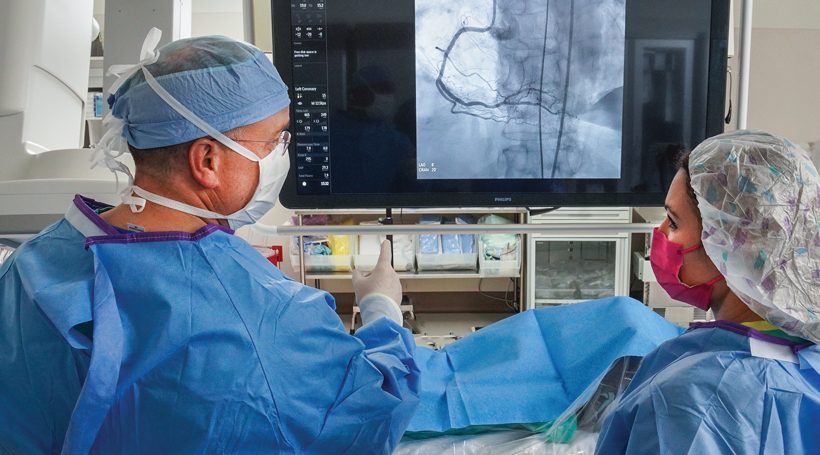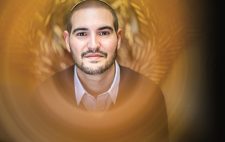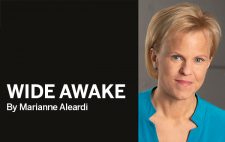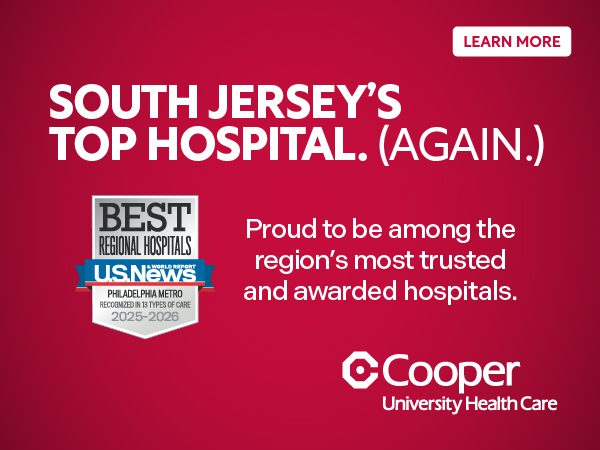
When you’re having a heart attack, time is of the essence. New state legislation recognizes that and ensures hospitals can make every minute of that life-saving care count.
“From your first contact with emergency personnel to the time I get you to the catheterization lab to open up the artery, we have 90 minutes,” says Jean-Bertrand Gué, MD, an interventional cardiologist with Cardiac Partners at Cooper and Inspira. “Time is muscle. The sooner blood flow can be restored to the heart, the less heart muscle damage will occur.”
Fortunately, techniques to improve that blood flow have come a long way in a short time. Since the late ’90s, the vast majority of blockages that would have required open heart surgery have been successfully treated with minimally invasive procedures. Those techniques have better outcomes, quicker recovery time and result in far less pain for most people, says Gué. And now, thanks to legislation expanding the scope of procedures that can be performed in community hospitals, many treatments can now be done closer to home.
“In the past, if you were brought in emergently with a heart blockage, I would open it up immediately, but if I also saw signs of additional blockages not related to the emergency situation, I could not intervene and take care of that at the same time,” says Gué. “I would have to have you come back for scheduled treatment or transfer you to an advanced cardiac surgery center, like our partners at Cooper University Hospital. It was less than ideal.”
Inspira has been a full-service provider of diagnostic cardiac catheterization for the past 25 years. Since 2009, the regional community health system has been providing emergency interventions, such as angioplasty and stenting. These are lifesaving interventions, says Gué. They’re known as percutaneous coronary intervention or PCI and have long been the standard of care at Inspira in emergency situations – when time is a critical factor.
But PCI’s are not just critical care treatments, he says. Elective or non-emergency PCI is a scheduled procedure that cardiologists regularly use to open clogged coronary arteries in patients diagnosed with coronary artery disease. This minimally invasive treatment restores blood supply to the heart muscle and helps prevent heart attack, heart failure and other forms of heart disease. In late December, Inspira received approval to have elective PCI performed at their Mullica Hill hospital. In coming months, Inspira Medical Center Vineland expects to get approval to provide elective PCI as well. For certain advanced procedures that still require on-site cardiac surgery backup, Gué can perform those at Cooper University Hospital in Camden.
The change is already making a big difference, says Gué. He recently treated a man brought to Inspira Medical Center Mullica Hill with chest pain. This patient proved to be a viable candidate for intervention given his history and multiple previous stenting procedures. With the newly implemented elective PCI protocols in place, Dr. Gué used cardiac catheterization – the use of a thin, flexible tube that travels through a blood vessel to the heart – to diagnose and treat a severe, life-threatening arterial blockage.
Had that patient come to the hospital just months earlier in the same state of distress, the patient would likely have required transfer to another hospital or scheduled to receive the stent at a later date. Before elective PCI approval, Inspira cardiologists in that situation could only intervene during an emergency, or STEMI, cardiac episode.
“Now I can take care of the emergency situation and treat the patient right here for other serious but not imminently life-threatening conditions that would not have been taken care of right away,” says Gué, who joined Inspira Medical Group Cardiology in October 2021. “I was able to diagnose and intervene right on the spot, and potentially prevent a future, life-threatening event. We treated him, and he went home the next day. That’s the way we can do things now.”
In addition to PCI, Dr. Gué’s training in structural cardiology allows him to routinely perform other advanced minimally invasive procedures on the heart’s valves, chambers, walls, and pockets. The ability to repair the heart without having to go through the rib cage has revolutionized heart treatment, he says. Among the procedures, transcatheter aortic valve replacement is considered the gold standard for patients who have severe aortic stenosis. In this procedure, a catheter is inserted into the leg or chest and guided to the heart.
“Before, if you had a valve problem, the only thing we could do was open heart surgery,” he says. “People who weren’t cleared for the surgery due to age or other medical conditions could not be treated. Now I can perform procedures to fix the valve and the patient can go home the next day.”
At Cooper University Hospital, Dr. Gué regularly implants a device called the WATCHMAN® in patients to prevent stroke. The WATCHMAN® is a device about the size of a quarter and shaped like a parachute. Once implanted into the heart, it closes off the left atrial appendage, which prevents blood clots from forming and causing a stroke. It can eliminate the need for blood thinners for patients with atrial fibrillation. “Atrial Fibrillation is the most commonly treated heart arrythmia at the hospital,” he says. “The WATCHMAN® is another minimally invasive tool we can use to treat patients and get them home the next day.”
Typically, he says, patients will have a follow up appointment 6 weeks later. The vast majority can be taken off blood thinners at that time and could very well never need them again.
“Ten years ago, that device was still undergoing clinical trials,” he says. “We’ve come a long way in treating cardiovascular disease safely and with positive, long-term results. We keep on pushing the limits.”
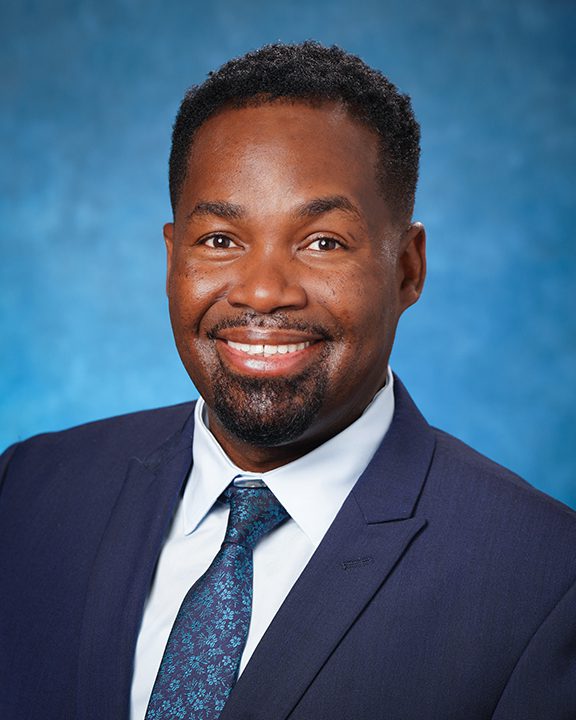
Jean-Bertrand Gué, MD Interventional Cardiologist
ABOUT Jean-Bertrand Gué, MD:
Jean-Bertrand Gué, MD, is a structural and interventional cardiologist with Inspira Medical Group Cardiology in Mullica Hill and a member provider with Cardiac Partners at Cooper and Inspira.
MEDICAL EDUCATION:
He began training at the Universidad Autónoma de Guadalajara in Zapopan, Mexico, ultimately transferring to New York Medical College in Valhalla, where he received his medical doctorate.
RESIDENCY/FELLOWSHIP:
He completed both his residency and fellowship in cardiovascular disease and interventional cardiology at Cooper University Hospital.
CERTIFICATIONS:
Internal medicine, cardiology and interventional cardiology by the American Board of Internal Medicine (ABIM).
SPECIALTY:
Coronary interventions, including ST-elevation myocardial infarction (STEMI), chronic total occlusion (CTO) and complex percutaneous coronary intervention (PCI), as well as peripheral, renal, carotid and subclavian artery interventions. He also performs complex procedures on the heart’s valves, chambers, walls and pockets.
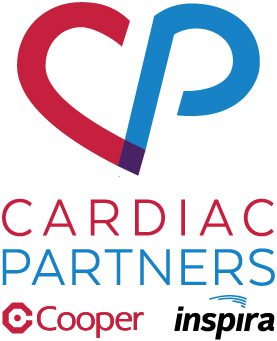
Inspira Medical Group Cardiology of Mullica Hill
698 Mullica Hill Road, Suite 330, Mullica Hill, NJ 08062
833-SJ-HEART
CardiacPartners.org


